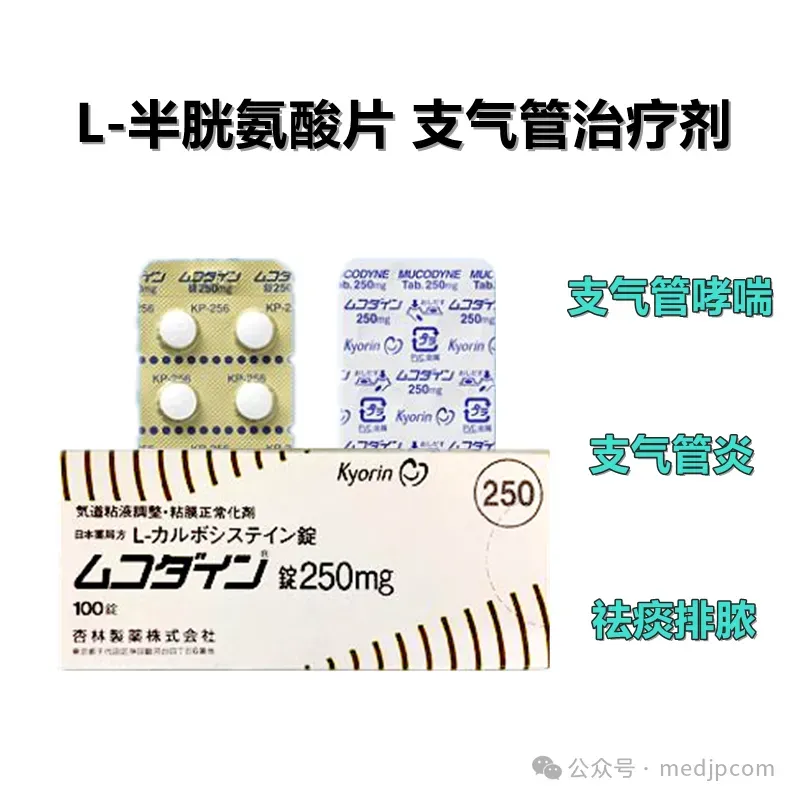Asthma, also known as bronchial asthma, is a chronic inflammatory disease of the airways involving various cells and their components. This condition leads to increased airway sensitivity, causing recurring symptoms such as wheezing, shortness of breath, chest tightness, and coughing, which typically worsen at night or early in the morning. These symptoms are often accompanied by varying degrees of airflow obstruction, which can either resolve on its own or improve with treatment.

A Blessing for Asthma Patients (Produced by Kyorin Pharmaceutical Co., Ltd.)
A highly effective medication for curing asthma.
✌? Indications: Upper respiratory tract inflammation (pharyngitis, laryngitis), acute, chronic, and long-standing bronchitis, bronchiectasis, long-standing and acute bronchitis, asthma, tuberculosis.
?? Specification: 100 tablets per box.
?? Dosage and Administration: Three times a day, one tablet each time.
Main Ingredient: L-carbocisteine
Efficacy: It regulates airway mucus, helping to restore normal mucosal function, thereby alleviating nasal bleeding and congestion. It is commonly used for treating upper respiratory tract inflammation, acute bronchitis, bronchial asthma, chronic bronchitis, bronchiectasis, tuberculosis, and chronic sinusitis drainage.
Dosage and Administration: For adults, take 2 tablets three times a day. The dosage may be adjusted based on the severity of the condition.
Side Effects: Possible side effects include loss of appetite, diarrhea, abdominal pain, rash, eczema, erythema, swelling, fever, and difficulty breathing. If any of these symptoms occur, please consult a doctor or pharmacist.
Precautions for Use:
Patients who have had allergic reactions (such as itching or rash) to similar medications should use this with caution.
Pregnant or breastfeeding patients should use this medication cautiously.
Patients currently taking other medications should use this with caution, as it may affect the efficacy of the drugs.
Asthma is a chronic inflammatory disease of the airways caused by various cells and their components. This chronic inflammation is closely related to airway hyperresponsiveness, often presenting as widespread and reversible airflow limitation, leading to recurrent symptoms such as wheezing, shortness of breath, chest tightness, and coughing, especially worsening at night or early morning. Most patients' symptoms can resolve on their own or improve with treatment.
Many asthma patients also have allergic reactions or allergic rhinitis. In patients with allergic rhinitis, symptoms like sneezing, runny nose, nasal itching, eye itching, and tearing often serve as early signs of an asthma attack. Asthma significantly impacts both the physical and mental health of individuals, and if not treated promptly or appropriately, it may result in serious consequences. On the contrary, standardized treatment can help approximately 80% of asthma patients achieve good control of their condition, allowing them to live and work with minimal interference.
The pathogenesis of asthma is complex and involves factors such as allergic reactions, chronic airway inflammation, airway hyperresponsiveness, abnormal neural regulation of the airways, genetic factors, respiratory viral infections, neural signal transduction mechanisms, and airway remodeling, among others.
